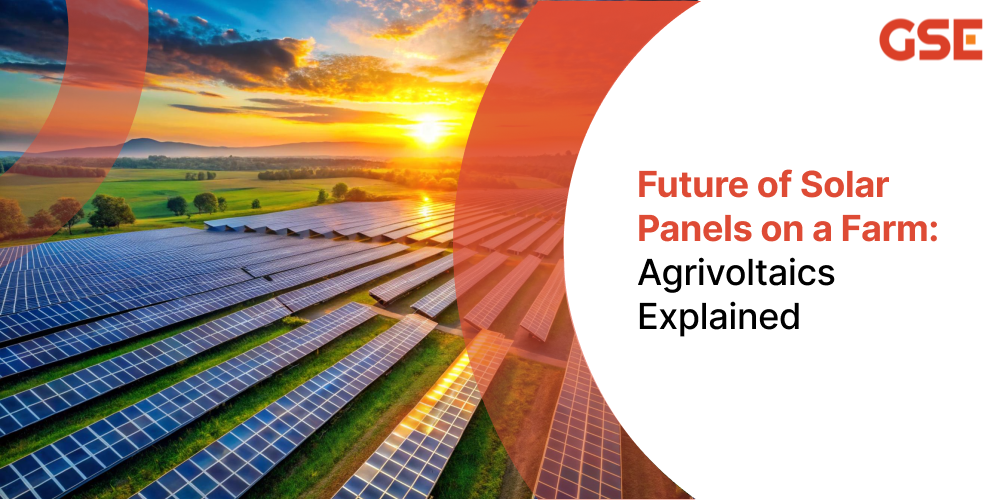Commercial Rooftop Solar Installation
Dec 2

With the global energy landscape shifting toward sustainability, India is embracing renewable energy sources. Solar farms—large-scale installations of solar panels—are playing a pivotal role. However, the integration of solar panels on farmland through agrivoltaics farming has emerged as a revolutionary solution to balance energy production and agricultural needs.
In this blog, we explore how GSE Renewable Energy’s solar farm solutions are transforming agricultural landscapes, boosting productivity, and supporting India’s journey toward a carbon-neutral future.
Agrivoltaics, or dual-use solar farming, involves using the same piece of land for both solar energy generation and agricultural activities. Solar panels are strategically installed in ways that allow farmers to grow crops, raise livestock, or foster pollinator habitats under or around the panels.
This approach offers multiple benefits:
GSE Renewable Energy offers various solar farm installation designs to suit diverse agricultural needs:
Solar panels in farms are more than energy producers—they are enablers of sustainable farming. Here’s how installing solar plant in farms benefit agriculture:
A solar farm is a large-scale installation of solar panels designed to generate renewable energy for residential, commercial, or industrial use.
Solar farms provide farmers with additional income through energy sales and reduce operational costs by powering equipment and irrigation systems.
Agrivoltaics is the practice of using the same land for both solar energy generation and agriculture. It enables a solar panel farm to coexist with crops, livestock, or pollinator habitats, optimizing land use.
Solar panels in farms provide shade to crops, reduce water evaporation, power irrigation systems, and create shaded areas for livestock, all while generating renewable energy to support farm operations.
